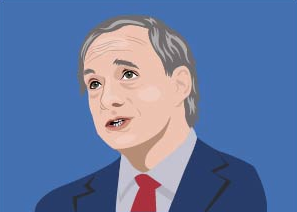his tape-reading skills were still important, they were not as important as studying the fundamentals of each company and the credit conditions of the stock market and the economy. His first successful “raid” on the stock market based on his sound, fundamental studies occurred during the Panic of 1907. As credit conditions tightened and as a number of businesses and Wall Street brokerages went bankrupt during the summer, Livermore could sense that something was wrong – despite the hopes of the public evident in the still-rising stock market. Sooner or later, Livermore concluded, there will be a huge break of epic proportions. Livermore continued to establish his short positions, and by October, the decline of the stock market started accelerating with the collapse of the Knickerbocker Trust in New York City and Westinghouse Electric. J.P. Morgan eventually stepped in to avert the collapse of the banking system and the New York Stock Exchange, but only after Livermore managed to make more than one million dollars by shorting the most popular stocks (and covering on a plea from J.P. Morgan himself) in the stock market.
"We don’t do a lot in technology. Successful technologies change some- thing, creating an efficiency or demand that wasn’t there before. But the very fact that the change happens means that somebody else can come along and change it again. If, because of the threat of technological obsolescence, I’m uncer- tain about a company’s cash flows sever- al years out, I’ll put a big discount on those cash flows and conclude they’re not worth much. Because Wall Street tends to put a large value on the future cash flows of technology companies, we rarely find one that we consider very attractive. " Ed Wachenheim
"If losses impair your future decision-mak- ing, then the cost of a mistake is not just the loss from that investment alone, but the impact which that loss may have on the future chain of events. If a loss freezes you from taking full advantage of a great opportunity, or pressures you to make it a smaller position than it should or would otherwise be, then the cost of a loss may be far greater than the initial loss itself." Seth Klarman
"Our goal is is to increase the normalised operating earnings every year, sometimes it will turn out to be a little bit, sometimes it will be a chunk." Warren Buffett


























































































































































